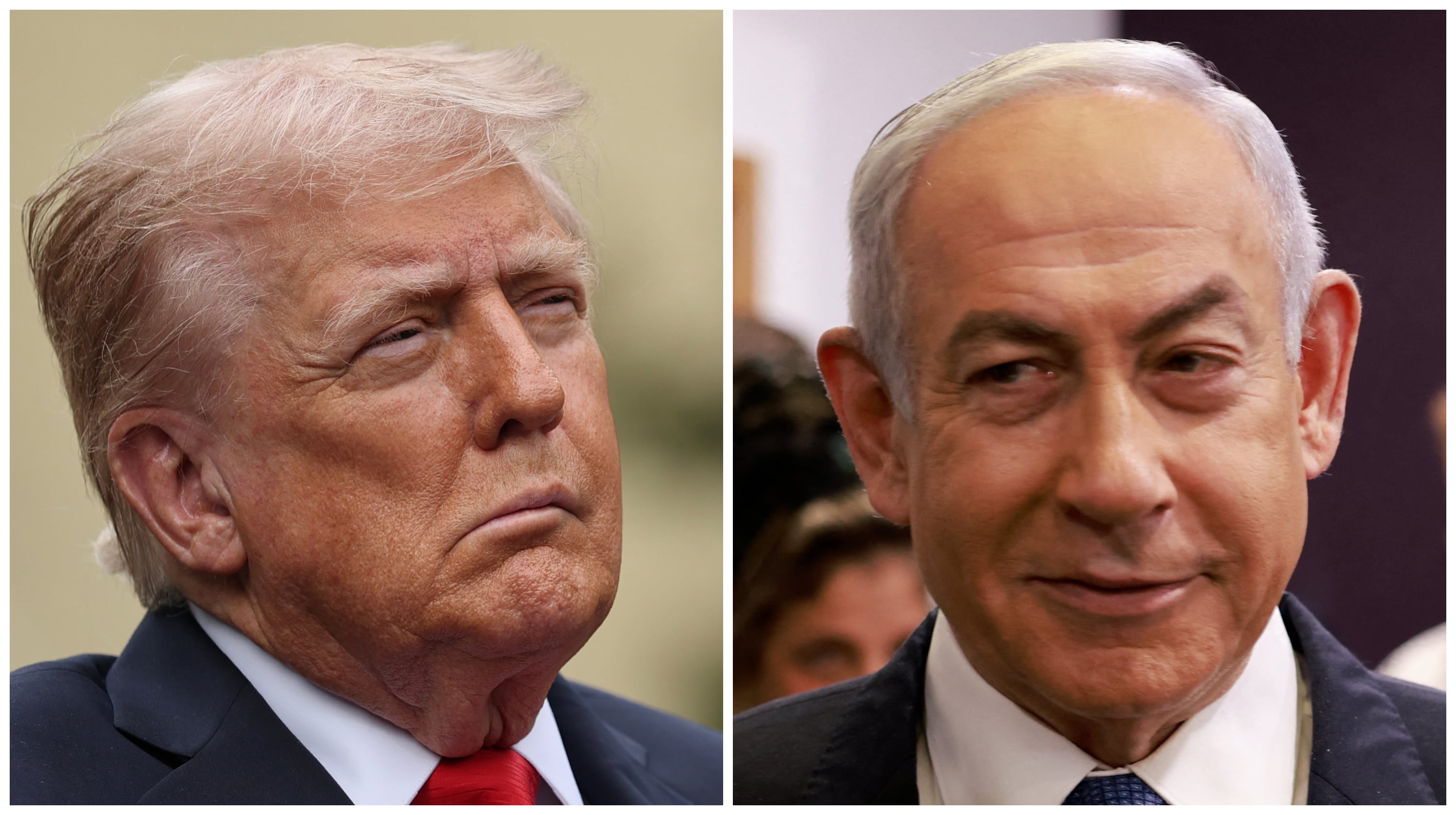
Israel Destroys Trump's Qatar Strike Timeline: What Really Happened?
Reports are surfacing that paint a different picture of President Trump's knowledge of the recent Israeli airstrike in Qatar. While Trump claimed he only learned about the attack after it happened, Israeli officials are now suggesting the White House was informed well in advance. Let's dive into the details.
 Getty Images
Getty Images
According to an Axios report, several Israeli officials have stated that the U.S. government, including the White House, had prior knowledge of the planned airstrike. This contradicts Trump's public statements indicating surprise and disapproval.
One senior Israeli official reportedly told Axios, "If Trump had wanted to stop it, he could have. In practice, he didn't." This suggests that the U.S. had the opportunity to intervene, but chose not to.
The planned strike, which targeted senior Hamas officials allegedly meeting in Qatar, was reportedly shared with U.S. officials "well in advance."
 Israeli Prime Minister Benjamin Netanyahu (L) meets with President Trump at the White House. The president reportedly excoriated Netanyahu for the Qatar strike, but new reporting suggests that Trump had advanced knowledge that the strike would take place. / Kevin Dietsch/Getty Images
Israeli Prime Minister Benjamin Netanyahu (L) meets with President Trump at the White House. The president reportedly excoriated Netanyahu for the Qatar strike, but new reporting suggests that Trump had advanced knowledge that the strike would take place. / Kevin Dietsch/Getty Images
Trump's Reaction and Qatar's Response
Following the strike, Trump publicly condemned the action. He even posted on Truth Social, stating, "This was a decision made by Prime Minister Netanyahu, it was not a decision made by me." He also claimed he tried to inform Qatar beforehand, a claim also being disputed. This apparent contrition came shortly after Qatar's significant "donation" of a $400 million Boeing 747 to the U.S. earlier this year.
The Axios report also suggests that Trump reprimanded Netanyahu in a phone call after the strike, demanding it not happen again. However, the new information from Israeli officials casts doubt on the sincerity of that call, implying a prior agreement or at least awareness.
Another senior Israeli official claimed, "Trump knew about the strike before the missiles were launched. First there was a discussion on the political level between Netanyahu and Trump, and afterwards through military channels. Trump didn't say no."
 Smoke billowing from a building in Doha, after an Israeli missile strike targeting Hamas leaders. Qatar condemned Israel's strike as a “blatant violation of international law.” / Jacqueline Penney/Getty Images
Smoke billowing from a building in Doha, after an Israeli missile strike targeting Hamas leaders. Qatar condemned Israel's strike as a “blatant violation of international law.” / Jacqueline Penney/Getty Images
Political Posturing or Genuine Disagreement?
Despite Trump's public disapproval, Israeli officials believe that much of the public reaction and the apparent frustration from American officials are simply political theater. One official told Axios that the administration has clear reasons to publicly distance themselves from the attack.
The airstrike resulted in casualties, including Hamas members and a Qatari security officer. Qatar has been a key mediator between Hamas and Israel, positioning itself as an American ally with influence in the region. The strike has understandably strained relations and complicated ongoing ceasefire negotiations.
 President Donald Trump met with Qatar's Emir Sheikh Tamim bin Hamad al-Thani during a visit to the Middle East in May, becoming the first US president to visit the oil-rich Gulf nation. / Brendan Smialowski/Getty Images
President Donald Trump met with Qatar's Emir Sheikh Tamim bin Hamad al-Thani during a visit to the Middle East in May, becoming the first US president to visit the oil-rich Gulf nation. / Brendan Smialowski/Getty Images
The Ceasefire Implications
Prior to the strike, Hamas was reportedly considering a U.S. ceasefire proposal that involved the release of hostages in exchange for Israeli concessions, including the release of Palestinian prisoners and a withdrawal from Gaza. Trump himself had suggested a deal was imminent. The strike in Doha effectively derailed these negotiations, a result that some Arab officials believe was the intended outcome.
The situation remains fluid, and further developments are expected as more information comes to light. The contrasting narratives between Trump's statements and the accounts of Israeli officials raise serious questions about the extent of U.S. involvement and knowledge regarding the controversial strike in Qatar. We will continue to follow this developing story.
This is a developing story and will be updated as more information becomes available.
```